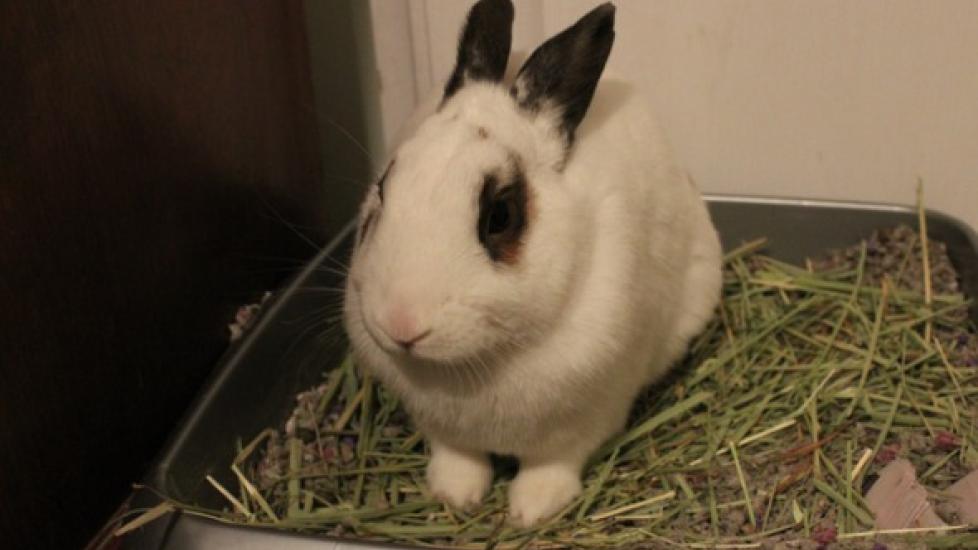Painful and Frequent Urination in Rabbits
Dysuria and Pollakiuria in Rabbits
The urinary bladder normally serves as a reservoir for urine as it is excreted by the kidneys. The bladder stores the urine temporarily, periodically releasing/disposing the urine that is stored there. Inflammation of the lower urinary tract may decrease bladder tone and alter the structure of the bladder, resulting in sensations of bladder fullness, urgency, and pain. Dysuria (painful urination) and pollakiuria (frequent urination) are usually caused by lesions in the lower urinary tracts but may also be indicative of upper bladder disorders or other organ involvement.
Symptoms and Types
- Frequent trips to the litter box
- Urination outside of the litter box
- Urinating when picked up by owners
- Blood in the urine
- Thick, white, or tan colored urine
- Loss of appetite, weight loss
- Lethargy
- Tooth grinding
- Straining for stools and urination
- Hunched posture in rabbits with chronic or obstructive lower urinary tract diseases
- Tender abdomen
Causes
- Abnormally high levels of calcium
- Kidney stones
- Urinary tract infection(s)
- Reproductive conditions
- Trauma
- Injury
- Obesity
Diagnosis
You will need to give a thorough history of your rabbit's health, onset of symptoms, and possible incidents that might have led to this condition. Your veterinarian will need to differentiate from other abnormal urination patterns. A complete blood profile will be performed, including a chemical blood profile, a complete blood count and a urinalysis. The urinalysis may find the presence of infection or pus and blood in the urine, and the blood analysis may find increased levels of blood calcium. Alternatively, the blood count and urinalysis may return normal results.
Other diagnostic tests may include abdominal X-rays, ultrasound, and a contrast study of the bladder and urinary tract – which uses a minimally invasive technique - an injection of a radiopaque/radiocontrasting agent into the space, so that it can be viewed in order to improve visibility on X-ray.
Treatment
Patients with urinary tract diseases without an obstruction are typically managed as outpatients, while rabbits with more severe forms of the diseases will warrant hospitlization, especially when multiple body systems are failing. Medication will also depend on the severity of the disease(s). Antibiotics and pain relievers, for example, are often prescribed, but must be given with caution.
Living and Management
Frequent follow-up examinations are recommended, as complications may arise during treatment.
Featured Image: iStock.com/bunnylovinggrl
